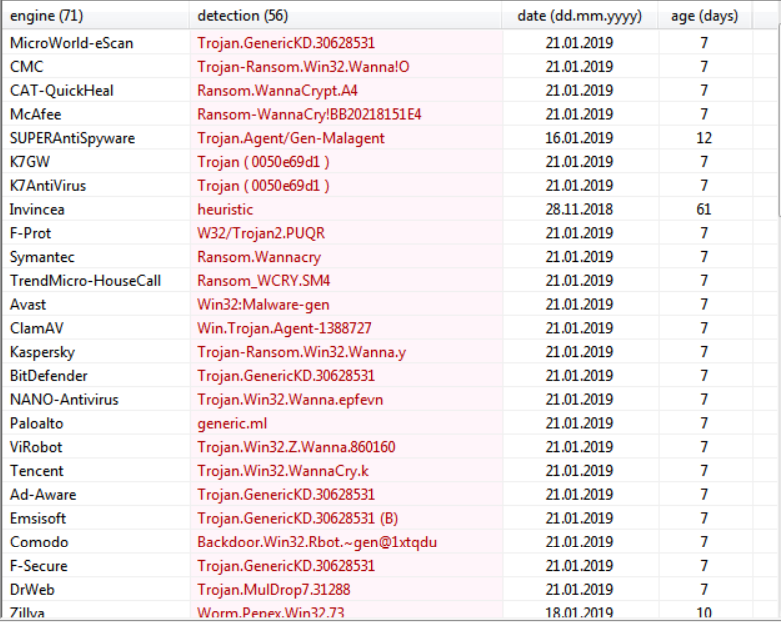I think I understand how does signature-based detection work (calculate hash -> compare it with the database of hashes), but I can't understand why some AV engines find the same virus as different.
As you can see VirusTotal show me that malware I used for researching is Trojan-Gen, WannaCry or Worm. Why different AV engines find the same malware as different.

